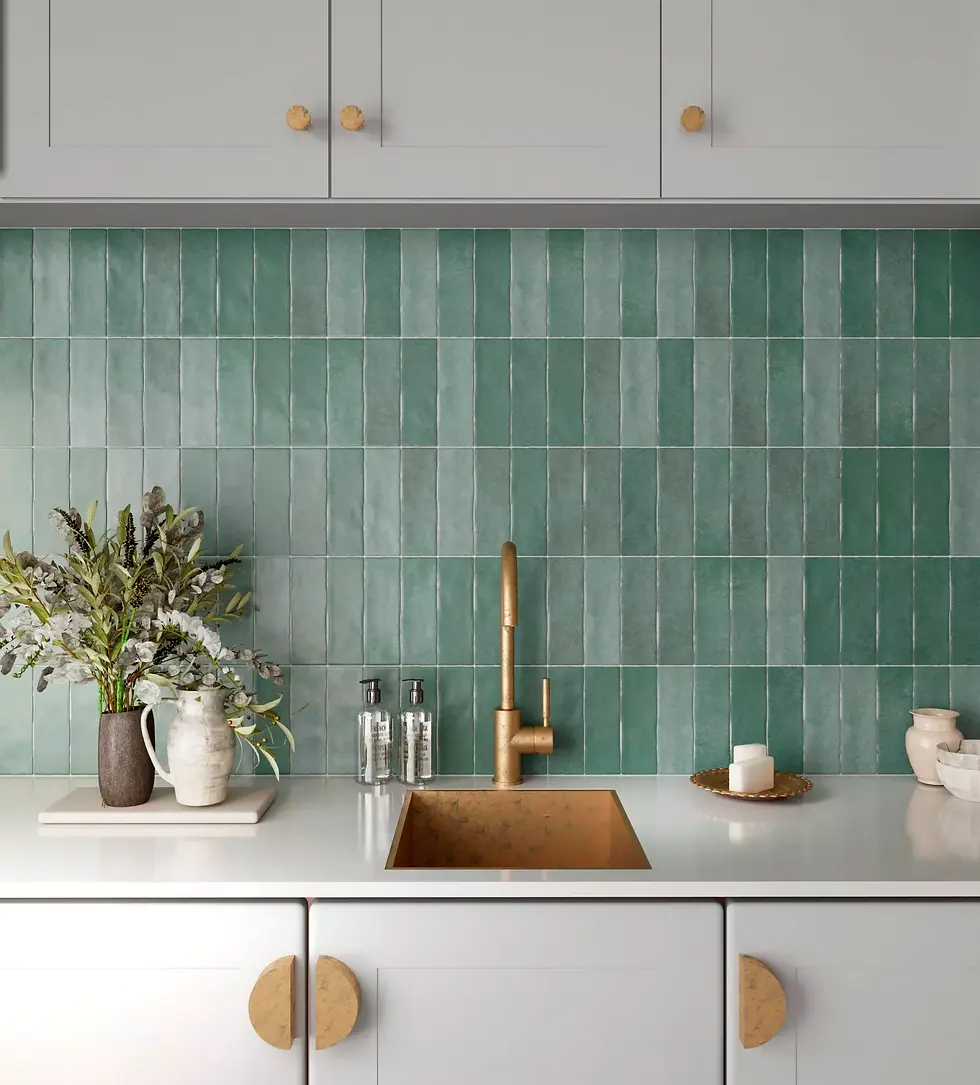Sealing your Grout and Tile
- Danielle Karsch

- Jun 23, 2023
- 3 min read
There are many steps involved in taking on a tile project - from choosing the perfect material, perfecting your layout, and installing your tile! Sealing tile and grout is a necessary and important part of the process to protect the materials and ensure your tile has a long lifetime - it’s also usually the step that gets missed!

Sealing the grout in your shower is a simple process that will prevent moisture from saturating between and under your tiles. Wet grout is a perfect place for dangerous mold and mildew to produce. As tile grout is usually made up of a mixture of sand, cement, and water it is naturally porous and absorbent. When grout is not sealed, over time, grime and moisture can soak into it, causing cracks on your tiles and forcing them to break at a certain point. By sealing your grout, and tile you get to prolong your tile surface's lifespan and minimize damage.
There are some grout products that do not require sealing. Such as epoxy base grout and Power grout by TEC with built in grout sealers with stain blockers. Both products are great options when installing a new tile and grout application if you are concerned with grout staining.

Another common product that needs to be sealed is natural stone tiles. Regardless of where you have natural stone in your home, it needs to be sealed to prevent damage to the stone from elements like moisture and dirt. In the shower, and in your bathroom or kitchen your tiles are even more at-risk for water damage. For this reason, it is important that you seal these tiles often I would recommend at least once per year.
Therefore, Stone sealing and grout sealing is an incredibly important process for your tile surfaces. Not only does it help protect from spills that make it susceptible to stains, sealing helps protect your stone and grout from mold and mildew growth, strengthens your grout, and slows down wear-and–tear.

After installing new tile and grout, wait for at least 48 - 72 hours for the grout to dry before sealing your grout and stone. During this time make sure to not spill water or liquids near tile and grout. Call us today and our team will visit your home and seal your grout properly and effectively.
Ceramic
Ceramic tile remains a popular flooring choice thanks to its durability and longevity. If it is glazed, it doesn’t usually need to be sealed. If the tile is in an area that receives high foot traffic, though, you can put a finish over the tile surface to enhance durability. This needs to be done for tile that is unglazed. Sealing the grout joints, though, is the most important thing, whether the tile is glazed or unglazed. If the grout joints were initially sealed right after installation, the sealer should be refreshed every one to two years. Be sure to properly clean and remove dirt and contaminants before sealing.
Porcelain
Porcelain is like ceramic tile in that the grout joints should be sealed whether the tile is glazed or unglazed. Porcelain tile is less than 0.5 percent for absorption and therefore does not generally require sealing.
Marble
Marble, though beautiful, is not the best choice for areas that get heavy traffic because it gets scratched and stained too easily. If you do choose marble for an area, you might want to apply a densifier or impregnator to the surface. The grout joints should be sealed.

Granite
Granite is quite scratch- and stain-resistant and is frequently used in class-A commercial buildings. Impregnators are typically used to protect polished granite, but sealing with finishes is not recommended. Sealing the grout joints is a good idea in most situations.
Slate
Slate is smooth and soft but is somewhat stain resistant because it is only semi-porous. A penetrating sealer is recommended for areas where food or liquid might be spilled.
If you're unsure what the best option is for your project, reach out to us. We'd love to discuss with you your options and see how we can help you.








Comments